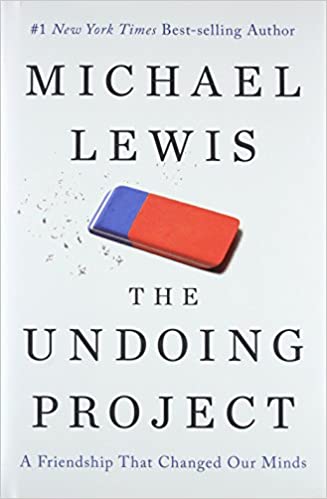Michael Lewis – The Undoing Project Audiobook
Michael Lewis – The Undoing Project Audiobook (A Friendship That Changed our Minds)

The Undoing Project Audiobook Online
This is one of the best. Michael LewisThe best publications of all time. The It is difficult to tell the story without requiring technological discussion. Lewis It was a relatively easy feat.
It is early in the morning book He also discusses the challenges faced by hunting gamers participating in special sporting activities leagues. He remembers the popularity of the “halo impact”, where scouts can see desirable solitary characteristics and let that perception influence the analysis of other qualities. The Undoing Project Audiobook Free. Representativeness is later on referred to as a more extensive category. Individuals use a variety of heuristics to make their decisions with limited information. Representativeness involves the early characterization and also categorization of an object/event/individual based upon some attribute that can be easily recognized. Anchoring refers to the act of taking brand.-New information and adjustments to their initial reasoning; availability, where one assigns too much weight to the information they have; as well simulation, which is an emotional bias that involves the simplicity of allowing one to psychologically simulate truth choices. Although heuristics can often be used as a guideline, they may sometimes lead to systematic error.
Representativeness can be explained using the “Linda Trouble”, which asks whether Linda is a financial bank teller or a cashier and a member in good standing of a feminist company. When all you hear is that Linda was a feminist. Many participants chose the second option, even though it contains the first alternative with a more limited summary. The first option is correct if Linda is a bank teller with a 10% chance, and the likelihood she is in a feminist group is 99%. The second option is incorrect if Linda is not a bank teller with a (10% x 99%) chance of being correct (which is less that 10%). The availability predisposition can also be explained by asking whether a certain person is available. book More words can be found with the form _____ ing or is _______n__. Participants picked the first option as they were familiar with words ending in “ing”, but forgot to consider that the second option also includes all words that meet the first option. The schedule is further explored. Lewis This is exactly how Kahneman & Tversky struck professionals for over-Extrapolating from small example sizes
We also discuss consumer decision biases. It is first clarified how individuals don’t show up to update probabilistic results using a Bayesian process in real-life decision-making. Tests have actually shown that humans do not choose to follow the laws of transitivity. Simply stated, if a customer prefers A to A and B to C, they might additionally choose C toA. They will undoubtedly describe it by reducing A,B, and C to private functions. This analogizes an individual purchasing A to actually purchasing a bundle of features represented by A. They realized that small differences, particularly in features, are often overlooked. Furthermore, specific contrast is not always possible since different things have different sets of attributes.
Perhaps the greatest achievement of Kahneman and Tversky was their inability to choose between Bernoulli’s utility concept and Kahneman’s. Utility concept described certain habits by classifying people into risk-averse, risk-neutral, and danger forgiving. When faced with the choice of between $50 and $50, free A person who is not concerned about risk would choose to ignore the choice. The decision would be made by a risk-averse individual. free You can save $50 by not spending $50. The utility they receive from the first $50 is more than the utility they get with the second $50. People do not rely on probabilistic reward odds. However, utility theory is not a well-established concept that has stood the test of time. Michael Lewis – The Undoing Project Audio Book Online. Tversky and Kahneman also discussed regret hostility. This is where people place too much weight on unfavorable outcomes. Then again, there’s loss aversion where people will want to take more risk (as a risk-forgiving person would in Bernoulli’s structure). When faced with the exact same decision, but with losses, they might choose to accept less. If faced with the choice of a $50 loss or a 50% chance of losing $100, someone who is more concerned about the gain side may choose to accept the risk.
